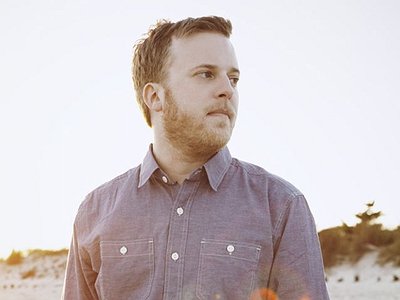Sketches and structures
Texan born and raised on a healthy diet of rock and country, Josh Mease found himself drawn more towards the unpredictable and progressive world of jazz. After studying jazz at New York's The New School, Mease realised that it wasn't meant to be and that his talents lay in the more tangible realm of traditional songwriting. A master of harmony and clever chord-smith, Mease has achieved the hard task of creating a unique sound while at the same time revealing the wealth spring of inspiration. A newcomer to the music scene, Mease released his debut in 2009 and is back with his second offering under the moniker of Lapland. Mease has managed to capture the sound of the Brooklyn music scene from the confines of his bedroom, delivering dreamy textures and honeyed harmonies in self-imposed exile.
When did you start writing/producing music - and what or who were your early passions and influences?
I started writing short silly songs and making recordings when I was around 14 or 15 on my 4-track cassette recorder. I listened to my parents’ Beatles and Paul McCartney records growing up, and watched lots of MTV. When I was about 16, I got swept up in jazz.
What do you personally consider to be the incisive moments in your artistic work and/or career?
When I was in my last year of college studying jazz, and I decided to start writing and singing songs with lyrics. I realized it felt much more natural and honest than anything I was capable of doing with jazz improvisation.
What are currently your main compositional- and production-challenges?
I would say the main compositional challenges I encounter almost always have to do with writing lyrics. I tend to write a melody and chords first and try to shoehorn words in that make some kind of sense. It’s a difficult way to work. The production challenges are all related to recording myself at home. Things can get difficult when you are using rooms that weren’t designed for recording. Regardless of where I work, getting vocal takes that sound right to me is always a challenge.
What do you usually start with when working on a new piece?
I usually start with some kind of chords or a rough melodic sketch and fill things out from there. As far as coming up with the initial chords and melody, I never know what will spur my imagination – It can be the sound of a guitar or keyboard with a particular effect, the sound of a programmed beat, or just the natural sound of some random instrument. Sometime I have a sentence or phrase in my head that gets me going too.
How strictly do you separate improvising and composing?
I think doing either at a high level requires some different skills, but there is definitely a connection between the two and I don’t make an effort to keep them separate. Composing has always seemed like slowed down and manipulated improvisation to me. I usually mess around with chords and melodic ideas until something catches my ear. After that, it’s lots of editing and re-editing.
How do you see the relationship between sound, space and composition?
All compositions have an architectural element to them - the shapes of the melodies, chords, rhythms, words, sounds, and the space therein. Just like in the physical world, I have my opinion of what is “good” and “bad” architecture. I get a strong sense of completeness or unity when the architecture of a song is working for me.
Do you feel it important that an audience is able to deduct the processes and ideas behind a work purely on the basis of the music? If so, how do you make them transparent?
I don’t get very intellectual about it. I’m not sure that I care if someone understands my processes or the ideas behind my work. When I listen to music, I’m usually reacting on a purely emotional or aural level. If a sound grabs me or I feel something strong when I hear a piece, that’s generally enough for me.
In how much, do you feel, are creative decisions shaped by cultural differences – and in how much, vice versa, is the perception of sound influenced by cultural differences?
I’m sure cultural differences do have some effect on creative decisions and perception of sound. I don’t know how much though. I think there are lots of environmental factors, and traits of personality involved. If you took another white male songwriter from Houston Texas, born around the same time as me, and asked us to create something or listen to something– we probably wouldn’t come up with the same conclusions.






